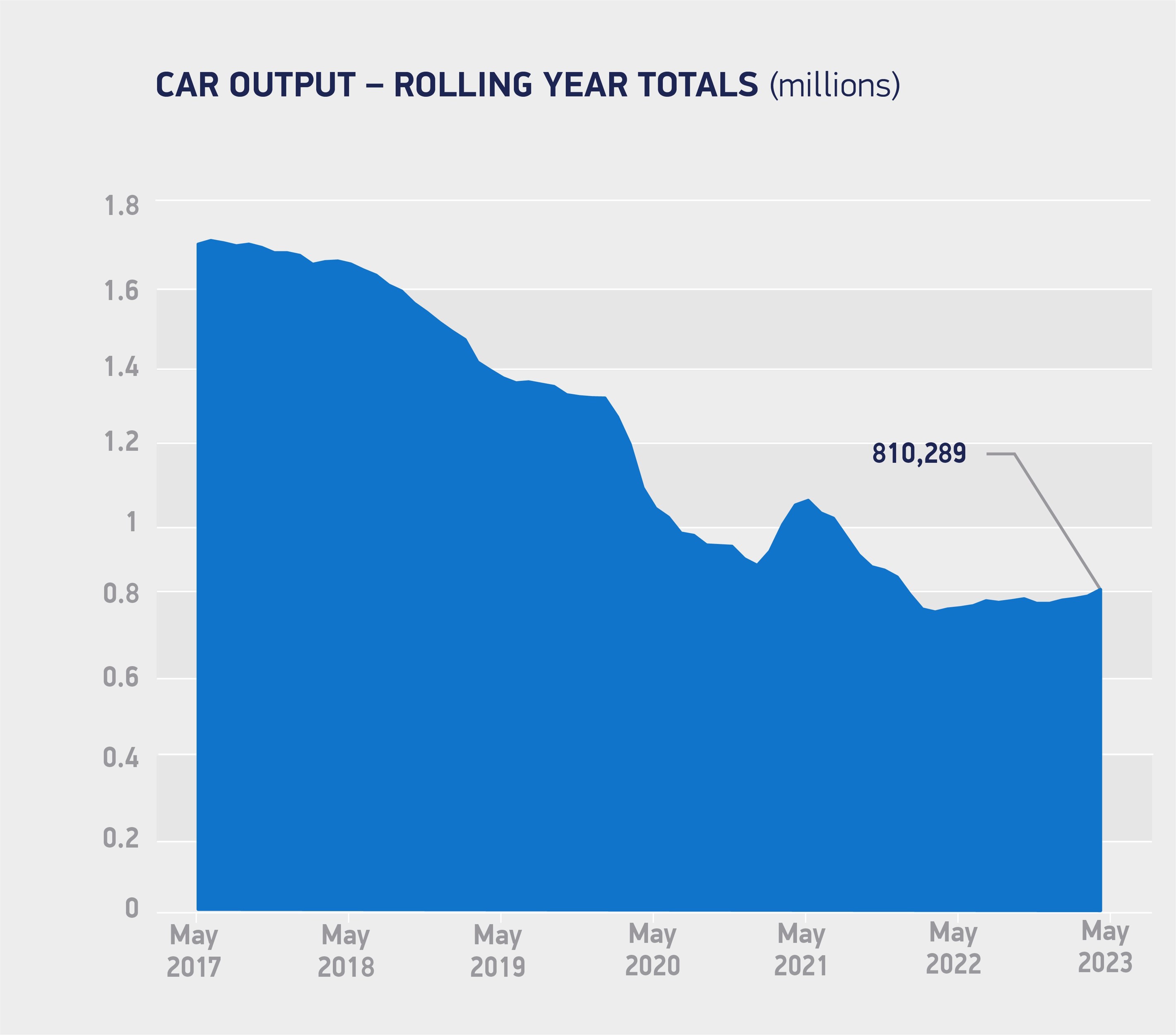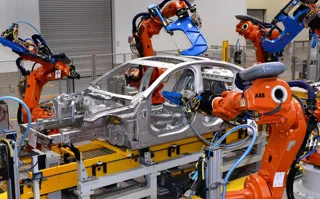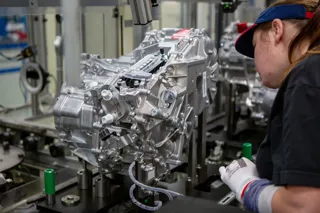UK car production rose for the fourth consecutive month in May, up 26.9% year on year, according to the latest figures published by the Society of Motor Manufacturers and Traders (SMMT).
Some 79,046 units left production lines, 16,762 more than in the same month last year, but still down by 31.9% compared to May 2019.
There was double-digit growth for domestic and overseas orders, with volumes for the UK surging by 45.4% to 16,188 units and exports rising 22.9% to 62,858 units.
Exports accounted for the majority of the production output, at 79.5%, with the EU remaining the biggest global market, taking 35,215 units, up 19% and representing 56.0% of all overseas shipments in the month.

Combined hybrid electric, plug-in hybrid (PHEV) and battery electric vehicle (BEV) volumes were up by 95.4% in May to 27,636 units and represented 35% of all cars made in the month.
Combined, UK car exports to the next largest markets, the US, China, Japan and Australia, represented less than a third (28.3%) of exports in May, and, at a total of 17,798 units, about half of all those sent into the EU.
Mike Hawes, SMMT chief executive, said: “Another month of growth for UK car production is good news and a sign that, despite challenging economic conditions, the industry’s foundations are strong.
“But with weak GDP growth, high inflation and rising interest rates, it’s crucial that UK car factories stay globally competitive.
“All political parties must recognise the strategic importance of this sector and back our call for an industrial strategy that supports local production, assures export market access and attracts further investment to safeguard our future.”
The news follows the launch this week of SMMT’s “Manifesto 2030: Automotive growth for a zero-emission future”, which sought cross-party support for five pledges to drive industrial transformation, mobility for all, upskilling, global trade and clean, affordable energy.
Doing so would help create the conditions for a 10-fold rise in annual EV production to over 750,000 units per year by 2030, which would equate to a cumulative £106 billion worth of products at factory gate, says the SMMT.























Login to comment
Comments
No comments have been made yet.